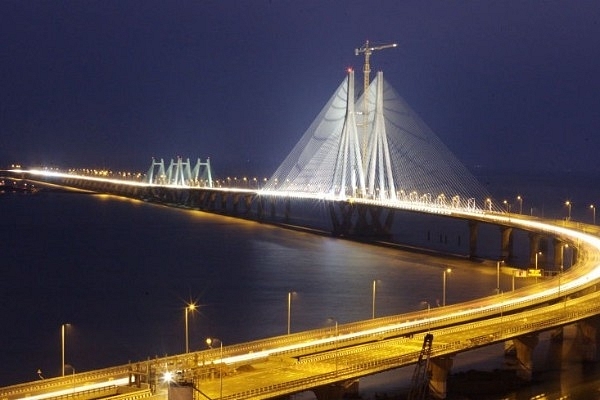
The Bandra Worli Sea link. (Satish Bate/Hindustan Times via Getty Images)
Insta
What Really Is The Mumbai Coastal Road Project? Here’s All You Need To Know
So, what really is the Mumbai Coastal Road Project? Here are some highlights:
- A 29.2-km-long stretch that will connect Marine Lines in the south of Mumbai to the western suburb of Kandivali. The road project is envisioned as a series of tunnels, roads on reclaimed land, roads on stilts and bridges with interchanges planned at strategic locations for dispersal of traffic.
- The Municipal Corporation of Greater Mumbai (MCGM) is aiming to start construction of the proposed Rs 12,000 crore Mumbai coastal road project from October this year.
- It is likely to be completed in the next four years.
- The Mumbai Coastal Road will comprise eight lanes. Out of the eight lanes, six will be exclusively dedicated to vehicular traffic. Two lanes will be earmarked for the BRT (Bus Rapid Transit system) corridor.
- BMC estimates that once the coastal road is commissioned, it is likely to reduce travel time by 70 per cent, and also result in annual fuel consumption saving to the tune of 34 per cent each year. The coastal road is expected to carry three-four lakh passengers per day
- Two earthquake-resistant tunnels will be constructed as part of the project: a 20-25 metre tunnel below Girgaum Chowpatty and another 70-75 metres below Malabar Hill. Each tunnel will be 3.4-km-long and connected with 13 cross tunnels that can be opened up in case of an emergency.
- The land reclamation done as part of the project will be 90 hectares - 22 per cent will be used for the construction of roads while the remaining 78 per cent will be utilised towards creating amenities for the project including three underground parking lots at Amarsons Garden, Mahalaxmi Temple, and Worli sea face.
- As part of the project, a cycling track, a jogging track and a botanical butterfly garden will be developed.
- A few civic activists and environmentalists have opposed the project claiming that it was “extravagant and wasteful” in terms of expenditure with potential to damage the fragile ecology and livelihoods of people. Also, they allege it was conceptualised by ignoring cheaper and more effective alternatives.